Heroin addiction is a devastating and complex issue affecting millions worldwide. The consequences of addiction can be profound, impacting not only the individual but also…
Heroin addiction is a devastating and complex issue affecting millions worldwide. The consequences of addiction can be profound, impacting not only the individual but also their families and communities. What should push everyone to fight heroin addiction is how deeply complex and challenging the condition is. After all, the physical, emotional, and social consequences can be profound, often leading to a downward spiral that seems impossible to overcome.
With heroin’s danger, recognizing the urgency of addressing this crisis, it is vital to explore the various treatment methods available to aid those seeking recovery and support them in their journey toward a drug-free life. While heroin addiction may be a tough battle, it is a great reminder that recovery is not only possible but achievable with the right treatment and support. By equipping readers with this knowledge, we hope to empower all of you to make informed decisions about your drug addiction treatment journey.
Throughout this article, we will explore various heroin addiction treatment modalities, including detoxification, medication-assisted treatment (MAT), behavioral therapies, and more. Each method has unique benefits and considerations, offering a comprehensive approach to address the multifaceted nature of addiction. That’s why it is helpful to know each of them. Remember, there is no one-size-fits-all solution for heroin addiction treatment. Every individual’s journey is unique, and what may work for one person may not be as effective for another.
Let’s dive into this article to learn relevant information about heroin addiction, starting from the danger of heroin addiction and what causes heroin addiction in the first place.
The Dangers of Heroin Addiction
Heroin addiction is a dangerous and potentially deadly condition that poses significant risks to both physical and mental health. The implications of heroin addiction can be devastating, affecting individuals, their families, and society as a whole.
One of the greatest dangers of heroin addiction is the ease with which it can take hold. The euphoric effects of heroin are highly addictive, and users quickly develop a tolerance, requiring larger doses to achieve the same high. This escalation in dosage significantly increases the risk of overdose, which can lead to respiratory failure and death.
In addition to the risk of overdose, heroin addiction also carries the potential for infections from sharing and using dirty needles. Using contaminated needles can lead to transmitting bloodborne diseases such as HIV and hepatitis C, further compromising an individual’s health.
Considering the dangers outlined above, it is clear that heroin addiction is a serious public health concern. Therefore, effective prevention, treatment, and support systems are vital to address the risks associated with heroin addiction and promote successful recovery.
Causes of Heroin Addiction
Heroin is a highly addictive morphine-derived drug that is classified as an opioid. It is synthesized from morphine derived from the opium poppy plant. Heroin is typically manufactured by chemically modifying morphine through a process known as acetylation.
Chemically, heroin is diacetylmorphine, and it belongs to the class of drugs known as opioids. It is an extremely potent substance that binds to the opioid receptors in the brain, producing intense euphoria and pain relief. Primarily, these feelings cause some people to get addicted to using heroin.
Here are some of the other key causes that contribute to heroin addiction:
- Genetic predisposition: Research suggests that genetics significantly determine an individual’s susceptibility to addiction. Certain genetic factors can make some individuals more vulnerable to developing an addiction to substances like heroin.
- Environmental factors: The environment in which a person grows up, and lives can greatly influence their likelihood of developing a heroin addiction. Factors such as exposure to drug abuse, poverty, physical or emotional abuse, neglect, and instability in one’s upbringing can increase the risk of addiction.
- Mental health issues: Individuals with mental health disorders, such as depression, anxiety, or post-traumatic stress disorder (PTSD), may turn to heroin as a form of self-medication. The temporary relief that heroin provides can make it an appealing option for alleviating emotional pain and distress.
- Prescription opioid abuse: For some individuals, heroin addiction begins due to misusing prescription opioids. Prescription opioids, like oxycodone and hydrocodone, can be highly addictive, and when individuals can no longer obtain these medications legally, they may turn to heroin as a cheaper and more accessible alternative.
- Peer pressure and social influences: Being around peers who use heroin or other drugs can significantly increase the likelihood of trying and eventually becoming addicted to heroin. Peer pressure, the desire to fit in, and the influence of social norms can all contribute to the development of addiction.
- Lack of education and awareness: Insufficient knowledge about the dangers of heroin use and addiction can contribute to its onset. This lack of awareness may result in experimentation or casual use, eventually spiraling into addiction.
It is important to note that while these factors contribute to the development of heroin addiction, not everyone who experiences these risk factors will become addicted. Addiction is a highly complex interplay of genetic, environmental, and individual factors. Nevertheless, understanding these causes can help inform prevention efforts and guide treatment approaches for individuals struggling with heroin addiction.
Short- and Long-Term Effects of Heroin Addiction
Heroin addiction has devastating short- and long-term effects on individuals, affecting their physical, mental, and social well-being.
In the short term, heroin use causes a rush of pleasure, followed by a state of extreme relaxation. It numbs pain and creates a sense of euphoria. However, this blissful state is fleeting, and users quickly develop tolerance, requiring higher doses to achieve the same effects. This increased tolerance leads to escalating drug use, increasing the risk of physical dependence and addiction.
Physical dependence happens when the body adapts to the presence of heroin, causing withdrawal symptoms when use is reduced or stopped. These symptoms include cold flashes, muscle and bone pain, insomnia, and restlessness. Alongside physical dependence, emotional disorders such as depression, anxiety, and irritability can arise, further impacting an individual’s mental health.
Moreover, long-term use of heroin can lead to a multitude of health conditions. Injecting the drug increases the risk of infectious diseases like HIV and hepatitis C due to sharing contaminated needles. Heroin use during pregnancy can result in complications, including premature birth, low birth weight, and developmental issues in newborns. Additionally, long-term heroin use is associated with kidney disease, heart problems, brain damage, respiratory issues, and an increased risk of overdose and death.
All in all, the short-term effects of heroin provide temporary relief and pleasure, but the long-term consequences can lead to physical and mental deterioration, as well as severe social and health problems.
Heroin Withdrawal
Heroin withdrawal is a challenging and often distressing process that occurs when individuals stop or reduce their heroin use. The symptoms experienced during withdrawal can be both physical and psychological, making it an incredibly difficult hurdle to overcome.
Physical symptoms of heroin withdrawal include jitters, chills, vomiting and diarrhea, bone and muscle pain, trouble sleeping, cold flashes, and uncontrollable leg movements. These symptoms arise as the body tries to readjust to functioning without the drug. The severity and duration of withdrawal symptoms can vary depending on factors such as the length and intensity of heroin use.
The psychological consequences of heroin withdrawal can be just as intense. Individuals may experience anxiety, depression, irritability, mood swings, and intense cravings for the drug. These psychological symptoms can be overwhelming and may increase the risk of relapse if not properly addressed.
How to Know if You Need Heroin Addiction Treatment
Recognizing the signs and symptoms of heroin addiction is crucial in determining whether you or a loved one may need heroin addiction treatment. While each person’s experience with addiction is unique, there are common indicators that can help identify the need for professional help.

One of the most significant indications of heroin addiction is intense cravings for the drug. These cravings can override rational thoughts and make it nearly impossible to resist drug use. Additionally, individuals struggling with addiction may find it increasingly difficult to manage their use, with escalating doses or more frequent use over time.
Continuing to use heroin despite experiencing negative consequences is another clear indicator of addiction. This can include strained relationships, legal issues, declining physical and mental health, and an overall deterioration in quality of life. Also, experiencing withdrawal symptoms when attempting to quit or cut back on heroin use is another warning sign. These symptoms include physical discomforts, such as jitters, muscle pain, vomiting, and intense psychological effects like anxiety, depression, and irritability.
If you or someone you know is exhibiting these signs, it is essential to consult a treatment professional to get an accurate assessment and determine the appropriate level of care. Each person’s journey to recovery is unique, and individualized care tailored to specific needs is crucial for successful treatment outcomes. Remember, seeking help is never a sign of weakness but rather a courageous step towards reclaiming your life from the grip of heroin addiction.
Heroin Addiction Treatment Options
When it comes to heroin addiction treatment, individuals can access a wide range of effective treatment options tailored to their specific needs. Treatment facilities for heroin addiction are designed to provide comprehensive care and support for individuals on their journey to recovery.
Here are the common heroin addiction treatment options:
What is Medical Detox?
Medical detox is a crucial and often the first step in heroin addiction treatment. It is a supervised process that eliminates heroin and any other substances from the body while managing withdrawal symptoms. The primary goal of medical detox is to ensure the individual’s safety while minimizing the discomfort and potential risks associated with withdrawal.
Here are some benefits of medical detox:
- Safety: Heroin withdrawal can be intense and potentially dangerous, leading to severe physical and psychological symptoms. Medical detox provides a safe and controlled environment with 24/7 medical supervision, ensuring individuals receive the necessary care and support during this challenging phase.
- Symptom Management: During medical detox, healthcare professionals can administer medications to help manage withdrawal symptoms. These medications can alleviate discomfort and reduce the severity of withdrawal symptoms, such as nausea, insomnia, muscle aches, and anxiety.
- Medical Monitoring: Besides medication management, medical detox allows continuous and strict monitoring of vital signs, including blood pressure, heart rate, and temperature. This close monitoring helps ensure the individual’s well-being and allows immediate intervention if any medical complications arise.
- Emotional Support: Detoxing from heroin can be emotionally challenging as individuals may experience intense cravings, anxiety, depression, and mood swings. In a medical detox program, individuals have access to trained professionals who can provide emotional support and guidance, addressing the psychological aspects of withdrawal.
- Transition to Continued Treatment: Medical detox serves as a bridge to further addiction treatment. It prepares individuals for the next phase of their recovery, whether inpatient rehab or outpatient treatment, therapy, or support groups. Detoxing in a supervised healthcare setting ensures a smoother transition into ongoing treatment and increases the likelihood of long-term success.
Moreover, here are some considerations for medical detox:
- Severity of Addiction: Medical detox is recommended for individuals with moderate to severe heroin addiction. It helps manage the physical withdrawal symptoms that may be too challenging to overcome without professional support.
- Safety Concerns: Medical detox is the safest option if an individual has underlying medical conditions or a history of severe withdrawal symptoms. It ensures that healthcare professionals promptly address any potential complications.
- Lack of Support at Home: Choosing medical detox is beneficial for individuals who lack a supportive and drug-free environment at home. By residing in an inpatient setting, individuals can focus solely on their recovery as they can be away from the distractions and triggers in their home environment.
Medication-Assisted Treatment: What is MAT?
Medication-Assisted Treatment (MAT) is another effective treatment option for heroin addiction. It is an evidence-based approach that combines medication with counseling and behavioral therapies. It is widely acknowledged as an effective method for helping individuals overcome the challenges of heroin addiction. The goals of Medication-Assisted Treatment are to reduce illicit drug use, prevent overdose, improve overall functioning, and support long-term recovery. It is an individualized approach, with the choice of medication and treatment duration based on the person’s specific needs and circumstances.
Here are some benefits of Medication-Assisted Treatment (MAT):
- Reduction of Withdrawal Symptoms: One of the primary benefits of MAT is its ability to alleviate withdrawal symptoms that occur when individuals stop using heroin. Medications are commonly used in MAT to help manage withdrawal symptoms, reduce cravings, and stabilize the individual’s physical condition. By minimizing the discomfort of withdrawal, MAT enhances the individual’s chances of successful recovery.
- Decreased Cravings and Relapse Prevention: MAT medications work by targeting the brain’s opioid receptors, reducing the intensity of cravings for heroin, and minimizing the risk of relapse. By effectively managing cravings, individuals are better able to focus on their recovery, engage in therapy, and make positive lifestyle changes.
- Harm Reduction Approach: MAT follows a harm reduction approach that recognizes addiction as a chronic medical condition. It aims to minimize the physical and social harms associated with heroin addiction. By providing access to FDA-approved medications, MAT reduces the risks of overdose, injection-related infections, and other health complications often associated with heroin use.
- Increased Treatment Retention and Engagement: MAT has been shown to improve treatment retention rates by reducing the likelihood of dropping out prematurely. The medications used in MAT provide stability, allowing individuals to actively participate in counseling, therapy, and other aspects of addiction treatment. This increased engagement in treatment can lead to better long-term outcomes and sustained recovery.
- Holistic Treatment Approach: MAT is typically combined with counseling and behavioral therapies to address addiction’s psychological and emotional aspects. This integrated approach helps individuals develop healthier coping mechanisms, learn relapse prevention techniques, and address underlying problems that may have contributed to their addiction.
Moreover, here are some considerations for Medication-Assisted Treatment (MAT):
- Accessibility and Affordability: The availability and affordability of MAT services may vary depending on the location and healthcare system. It is important to consider whether the necessary medications, healthcare providers, and support services are accessible and financially feasible.
- Potential Side Effects and Interactions: Like any medication, MAT medications may have potential side effects and interactions with other medications. That’s why it is important to discuss these considerations with healthcare professionals to ensure the individual’s safety and well-being.
- Long-Term Commitment: MAT is often recommended as a long-term treatment for chronic heroin addiction. Consideration should be given to the commitment required for ongoing medication management and regular visits to healthcare providers.
Medications Used in MAT of Heroin Use Disorder (Opioid Use Disorder – OUD):
Heroin addiction, a form of Opioid Use Disorder (OUD), can be particularly challenging to overcome due to the strong cravings and withdrawal symptoms associated with this powerful opioid. MAT for heroin addiction primarily involves the use of medications that help individuals manage cravings, reduce withdrawal symptoms, and regain control over their lives. Here are the key medications used in MAT for heroin addiction:
- Naltrexone: Naltrexone is an opioid antagonist that blocks the effects of opioids, including heroin. It does not provide relief from withdrawal symptoms, but can be effective in preventing relapse. Available in oral form (daily pill) or as a monthly injectable (Vivitrol). Naltrexone can help individuals maintain abstinence from opioids by blocking their effects. This medication is typically used once individuals have successfully detoxified from opioids.
- Methadone: Methadone is a long-acting opioid agonist that helps stabilize individuals by reducing cravings and preventing withdrawal symptoms. Typically administered in specialized clinics, on a daily basis under strict supervision. Methadone provides long-lasting relief from withdrawal symptoms and cravings, allowing individuals to function without the highs and lows associated with heroin use. Methadone maintenance is often a long-term treatment option.
Inpatient Rehab / Residential Treatment
Inpatient rehab or residential treatment is a comprehensive and intensive form of heroin addiction treatment involving individuals residing at a treatment facility for an extended period of time. It provides a structured and supportive environment where individuals can focus on their recovery and receive round-the-clock care and support. The main goal of inpatient or residential treatment is to provide individuals with a safe, peaceful, and supportive environment to address the physical, psychological, and emotional aspects of heroin addiction.
Additionally, inpatient or residential treatment programs create a structured daily schedule that includes therapy sessions, support group meetings, recreational activities, and educational workshops. This structured environment aims to minimize distractions, remove access to drugs, and promote a focus on recovery. During their stay, individuals have the opportunity to interact and connect with peers who are also on the path to recovery. Building relationships with others who understand the challenges of addiction can provide a sense of community and support.
Here are some benefits of inpatient/residential treatment:
- Structured and Supportive Environment: Inpatient/residential treatment offers a highly structured and supportive environment free from everyday life’s triggers and temptations. Because of that, individuals can immerse themselves in recovery-focused activities and therapies, away from the influences that may contribute to drug use.
- 24/7 Medical and Emotional Support: In inpatient/residential treatment, individuals can access 24/7 medical and emotional support from a team of healthcare professionals. This includes medical monitoring, medication management, therapy sessions, and support groups. The constant presence of professionals ensures that individuals receive immediate attention and care in case of any physical or emotional challenges.
- Detoxification Services: Inpatient/residential treatment often includes detoxification services for individuals who need to safely withdraw from heroin. Medical professionals closely monitor the detox process, providing medications and support to manage withdrawal symptoms and ensure the individual’s safety.
- Comprehensive Therapeutic Approach: Inpatient/residential treatment typically offers a wide range of therapeutic interventions, including individual counseling, group therapy, family therapy, and holistic therapies such as art therapy or mindfulness practices. These therapies address the underlying reasons for addiction, develop coping skills, and provide individuals with the tools they need to maintain abstinence.
- Peer Support and Community: Inpatient/residential treatment provides the opportunity to connect with peers who are also in recovery. Supportive relationships with individuals who understand the challenges of addiction can be invaluable in the recovery process. The communal living environment fosters a sense of unity, accountability, and social support.
Moreover, here are some considerations for inpatient/residential treatment:
- Treatment Duration: Inpatient/residential treatment typically involves a longer time commitment than outpatient programs. That’s why individuals should consider their ability to commit to a lengthier stay away from family, work, or other responsibilities.
- Cost and Insurance Coverage: Inpatient/residential treatment can be more expensive than outpatient treatment options. Considering insurance coverage and other financial aspects is crucial in determining the affordability of this type of treatment.
- Level of Addiction and Need for Intensive Care: Inpatient/residential treatment is often recommended for individuals with severe addiction to heroin or those who have experienced unsuccessful attempts at outpatient treatment. The round-the-clock care and intensive approach make it a suitable option for individuals requiring a higher level of support and structure.
- Support System at Home: Inpatient/residential treatment may be a preferred choice for individuals lacking a supportive or drug-free home environment. It offers a temporary separation from potentially harmful or triggering surroundings, allowing individuals to focus solely on their recovery.
Outpatient Treatment
While various effective treatments are available, outpatient treatment has emerged as a valuable choice. Unlike residential programs, outpatient treatment allows individuals to receive comprehensive care while maintaining their everyday routines. Outpatient treatment for heroin use disorder generally involves a combination of therapy, counseling, medication management, support groups, and other evidence-based interventions. Depending on the intensity and duration of the program, participants may attend therapy sessions several times per week for a specified period. The treatment duration can vary depending on individual needs and progress.
Here are some benefits of outpatient treatment:
- Flexibility and Independence: Outpatient treatment allows participants to attend therapy sessions and receive support while fulfilling their personal and professional commitments. This allows individuals to maintain their independence and gradually reintegrate into society during recovery.
- Cost-effectiveness: Compared to inpatient or residential treatment, outpatient programs are more cost-effective. Outpatient services do not include the expenses associated with accommodation and around-the-clock supervision, making them a more affordable option for many individuals seeking help for their heroin addiction.
- Support Network: Outpatient treatment allows individuals to lean on their existing support network, including family and friends, during recovery. The involvement of loved ones can provide crucial emotional support and encouragement, which can be instrumental in sustaining long-term recovery.
- Real-life Application: Outpatient treatment allows individuals to confront real-life triggers and challenges while in therapy. The skills and coping mechanisms acquired in outpatient programs can be directly applied to daily life, enabling participants to develop healthier habits, manage cravings, and make better decisions.
Moreover, here are some considerations for outpatient treatment:
- Strong External Support System: Since outpatient treatment relies on the individual’s existing support system, it is crucial to have a stable and reliable network of family and friends who are committed to the recovery journey. Having a strong support system in place ensures that the individual receives the necessary encouragement and assistance to stay on track.
- Level of Addiction Severity: Outpatient treatment is generally recommended for individuals with a milder addiction or those who have already completed a higher level of care. If the addiction is severe or accompanied by additional mental health issues, a more intensive treatment option, such as residential rehab, maybe a better choice initially.
- Living Environment: The living environment plays a significant role in determining the appropriateness of outpatient treatment. It is essential to evaluate whether the individual’s living situation is conducive to recovery, free from negative influences, and supportive of their commitment to sobriety.
- Personal Motivation and Accountability: Outpatient treatment significantly emphasizes personal motivation and accountability. Individuals must be willing to actively engage in the treatment process, attend therapy sessions consistently, participate in group meetings, and follow through with the recommended treatment plan. It requires a strong personal commitment to achieving lasting recovery.
Drug Addiction Therapy
There are several evidence-based drug addiction therapy options available for a heroin addiction treatment program. These therapies aim to address the addiction’s physical, psychological, and behavioral aspects, assisting individuals in overcoming their drug dependency and fostering long-term recovery. Here are some commonly used therapies for heroin addiction treatment:
Cognitive-Behavioral Therapy (CBT)
CBT is a widely recognized therapy that focuses on identifying and modifying negative and self-destructive thought patterns and behaviors. It helps individuals recognize triggers and develop healthier coping mechanisms to manage cravings and drug-related thoughts. CBT also assists in improving problem-solving skills and building resilience, ultimately promoting sustained recovery.
Contingency Management
Contingency management is another therapeutic approach for heroin addiction. It involves using positive reinforcement to encourage and reward desired behaviors, such as maintaining abstinence from heroin or completing treatment goals. Individuals receive tangible incentives, such as vouchers or privileges, to reinforce drug-free activities or meet treatment milestones. This approach has shown effectiveness in increasing motivation, promoting abstinence, and reducing drug use.
Motivational Interviewing (MI)
Motivational Interviewing is a client-centered therapy that aims to enhance motivation and resolve ambivalence toward addiction treatment. It involves empathetic and non-judgmental conversations between the individual and the therapist, primarily focusing on exploring their intrinsic motivation to change. MI helps individuals identify personal values and goals, assess the advantages and disadvantages of substance use, and promote commitment to a recovery journey.
Dialectical Behavior Therapy (DBT)
DBT is a therapeutic approach that combines elements of CBT with mindfulness techniques. It aims to help individuals regulate emotions, manage stress, and improve interpersonal skills. DBT teaches effective coping strategies to address the emotional dysregulation often experienced by individuals with substance use disorders, promoting healthier ways of managing thoughts and emotions.
Family Therapy
Family therapy involves the participation of family members or significant others in the treatment process. It focuses on improving family communication, fostering support within the family system, and addressing dysfunctional patterns that may contribute to substance abuse. Family therapy can enhance understanding, rebuild trust, and provide a supportive environment for the individual’s recovery.
Support Groups
Support groups play a significant role in the treatment of heroin addiction by providing a supportive and nurturing community of individuals facing similar challenges in drug addiction treatment. These groups offer a safe space where participants can share their experiences, gain valuable insights, and receive encouragement throughout their recovery journey.
Here are some benefits of support groups:
- Shared Experiences: Support groups provide a platform for individuals to connect with others who have walked a similar path and experienced the struggles associated with heroin addiction. This shared experience fosters empathy, understanding, and the knowledge that one is not alone in their recovery journey.
- Emotional Support: Support groups offer a compassionate and non-judgmental environment where participants can express their feelings, fears, and successes. The support and validation received from peers can be instrumental in building self-esteem, reducing shame, and boosting motivation to continue on the road to recovery.
- Peer Feedback and Learning: In support groups, individuals can practically learn from the insights and experiences of others. Participants may gain valuable advice, coping strategies, and practical tips for overcoming challenges associated with heroin addiction. Learning from peers who have successfully navigated similar obstacles can provide a sense of hope and inspiration.
- Accountability and Motivation: Support groups often have a structure of regular meetings where individuals can hold themselves and each other accountable for their recovery goals. This accountability fosters motivation to stay committed to sobriety and make positive changes in their lives.
- Long-Term Support Network: Joining a support group can provide individuals with a long-term support network beyond the duration of formal treatment. Participants often build strong relationships with others in the group, forming invaluable connections for ongoing support, encouragement, and understanding.
Moreover, here are some considerations for support groups:
- Compatibility and Safety: Finding a support group that aligns with individual needs and values is important. That’s why there is a need to consider factors such as location, meeting format (in-person or online), group dynamics, and the level of confidentiality and safety maintained within the group.
- Facilitation and Structure: The facilitation and structure of support groups can vary. Some groups are led by professionals such as therapists or counselors, while others are peer-led. Consider the level of guidance and facilitation that would be most beneficial for personal growth and understanding.
- Treatment Compatibility: Support groups can complement other forms of treatment, such as therapy or medication-assisted treatment (MAT). Ensure the chosen support group aligns with the treatment plan and goals.
- Personal Comfort: Assess personal comfort levels with sharing experiences and engaging in group discussions. Remember, it is important to find a support group where individuals feel safe, respected, and comfortable opening up about their struggles and successes.
Aftercare Planning
After completing an initial phase of treatment for heroin addiction, individuals often transition to an important phase known as aftercare planning. Aftercare planning focuses on supporting individuals as they navigate the challenges of maintaining sobriety and preventing relapse. With its focus on continuity of support, relapse prevention strategies, individualization, and holistic well-being, aftercare planning helps individuals establish a solid foundation for long-term recovery.
Here are some benefits of aftercare planning:
- Continuity of Support: Aftercare planning ensures a smooth transition from intensive treatment to post-treatment support. It provides individuals with ongoing access to various resources, such as counseling, therapy, support groups, and medication management. This continuity of support helps individuals maintain their commitment to recovery and navigate the challenges of returning to daily life.
- Relapse Prevention: Aftercare planning equips individuals with the tools and strategies necessary to prevent relapse. It focuses on identifying potential triggers and developing coping mechanisms to effectively deal with stressful situations. Through regular check-ins and ongoing support, aftercare planning assists individuals in identifying early warning signs of relapse and taking appropriate action to prevent it.
- Individualized Approach: Aftercare plans are tailored to meet each individual’s unique needs and challenges. It takes into account factors such as one’s living environment, family support, work or education commitments, and any co-occurring mental health issues. Basically, aftercare planning increases the chances of successfully maintaining long-term recovery by providing personalized guidance and support.
- Holistic Well-being: Aftercare planning emphasizes holistic well-being by addressing not only the physical aspects of addiction but also the mental, emotional, and social aspects. It encourages individuals to engage in self-care practices, develop healthy routines, build positive relationships, and seek ongoing professional support when needed. This approach promotes overall well-being and enhances the likelihood of sustained sobriety.
Moreover, here are some considerations for aftercare planning:
- Comprehensive Treatment Centers: When choosing aftercare planning, it is crucial to consider treatment centers that offer comprehensive aftercare support. These centers should provide a wide range of services, including counseling, therapy, support groups, vocational support, relapse prevention strategies, and access to community resources.
- Individualized Approach: Ensure the aftercare planning program considers the individual’s unique needs and circumstances. The plan should be flexible enough to adapt to changing circumstances and accommodate the individual’s evolving recovery journey.
Long-term Focus: Consider aftercare planning programs that emphasize long-term recovery. Look for programs that provide ongoing check-ins, periodic evaluations, and support beyond the initial transition phase. Long-term planning can help individuals navigate challenges that may arise months or even years after completing initial treatment.
Frequently Asked Questions
We have compiled a list of the most frequently asked questions about heroin addiction treatment to help you navigate this journey. So, without further ado, let’s explore and address these commonly asked questions about heroin addiction treatment together.
Is detoxing from heroin necessary before starting treatment?
Yes, detoxing from heroin is often necessary before starting treatment for heroin addiction. Detoxification is the process of eliminating the drug from the body and managing the withdrawal symptoms that occur when someone stops using heroin. Withdrawal symptoms can be highly uncomfortable and sometimes even dangerous, making it crucial to undergo detox in a medically supervised setting.
Once detox is complete, individuals can then transition into addiction treatment programs tailored to their needs. Ultimately, it’s important to note that detox alone is insufficient for long-term recovery. It should be followed by comprehensive addiction treatment.
How long does heroin addiction treatment take?
The duration of heroin addiction treatment varies for each individual. It depends on factors such as addiction severity, overall health, and personal circumstances. Treatment may range from several weeks to months or even years, including ongoing support and aftercare.
What is the success rate for heroin addiction treatment?
The relapse rate for individuals who have completed heroin addiction treatment can vary depending on several factors. It’s important to note that relapse is considered a common occurrence in addiction recovery and should not be seen as a failure. Recovery is a complex and ongoing process, and relapse should be seen as an opportunity for learning and growth rather than a setback.
According to the National Institute on Drug Abuse, 40% to 60% of those suffering from substance abuse will relapse. The relapse rate for heroin users is reportedly higher at 80%. These rates can be influenced by various factors. Considerations include the duration and intensity of addiction, the presence of co-occurring mental health disorders, the level of support and aftercare received, and individual factors such as stress, triggers, and personal motivation for recovery.
However, it’s important to emphasize that relapse does not indicate treatment failure. In fact, relapse is often viewed as a part of the recovery process, and many individuals who experience relapse go on to achieve long-term sobriety with continued treatment and support. Thus, engaging in comprehensive aftercare programs, attending support group meetings, continuing therapy or counseling, and building a strong support system are necessary to enhance the chances of sustained recovery.
Continually working on relapse prevention strategies, developing healthy coping mechanisms, and addressing underlying issues contributing to substance use can significantly reduce the risk of relapse.
How much is heroin addiction treatment?
The cost of addiction typically far outweighs the cost of drug addiction treatment. According to the Department of Justice, Heroin has a single dose cost of $15 – $20, and accorind to most studies those with an extreme heroin addiction reportedly spend between $150 – $200 a day, or about $54,000 – $73,000 a year in heroin purchases.
The average cost for inpatient rehab in the US for drug addiction is $42,000. The cost for residential treatment programs at Costa Rica Treatment Center ranges from $5,950 – $10,950 per month. While the monthly cost of an addiction treatment program may seem quite high up front, the cost of a heroin addiction is fairly comparable, if not higher. Addictions typically extend for a much longer period of time than treatment programs, resulting in a much higher long-term cost to maintain this addiction.
Can heroin addiction be successfully treated without the use of medications?
Yes, heroin addiction can be successfully treated without medications, although the approach may vary for each individual. Non-medication-based treatment options aim to address addiction’s psychological, emotional, and behavioral aspects. These interventions can be highly effective in helping individuals achieve and maintain recovery. Some of these non-medication-based treatment options include behavioral therapies and holistic approaches.
Can individuals with a history of multiple relapses still benefit from heroin addiction treatment?
Individuals with a history of multiple relapses can still benefit from heroin addiction treatment. Relapse is a common and challenging aspect of addiction recovery, and it does not mean that treatment has failed or that future attempts at recovery are futile. In fact, treatment can be particularly helpful and effective for individuals who have experienced relapses in the past.
Multiple relapses can be disheartening, but they can also contribute to an increased sense of resilience and determination in individuals seeking recovery. Each setback can be seen as an opportunity for growth, self-reflection, and a strengthened commitment to overcoming addiction.
According to a 2020 study conducted by the Center for Disease Control, 75% of individuals who face addiction ultimately find a path to recovery. For those struggling with heroin addiction, there is a beacon of hope, and seeking treatment for drug addiction can be instrumental in attaining long-lasting recovery from heroin.
Final Thoughts
With different drug addiction treatment options, there is no doubt that recovery from heroin addiction is possible. The recovery process may be challenging, and each setback can affect determination and commitment. Yet, there is always help available, and that includes Costa Rica Treatment Center. Whether it is you or your loved one who needs help with heroin addiction, CRTC can help. Remember, no one should be alone in this journey, as there are countless people who can help.
What makes Costa Rica Treatment Center the best partner for the treatment is that we work with hand-selected professionals that comprise the most experienced multidisciplinary team in the country. That’s why you can trust us to give you personalized and accurate information regarding heroin addiction treatment. Additionally, we take pride in our treatment centers that provide serene and peaceful settings for the treatment. These centers are away from distractions and stresses of everyday life so our patients can focus on their recovery, fostering healing and personal growth.
More importantly, we understand that each person’s journey with heroin addiction is unique. That’s why we tailor treatment plans based on each individual’s specific needs, preferences, and circumstances. This individualized approach ensures the addiction treatment program meets the individual’s specific recovery goals. Therefore, don’t hesitate to ask for our assistance.Take the first step today. Contact us or get a free evaluation today.








